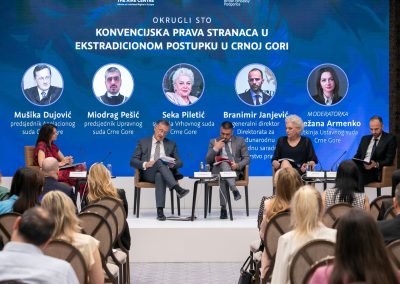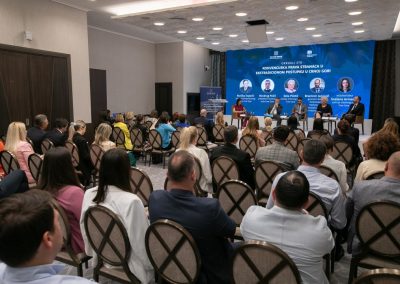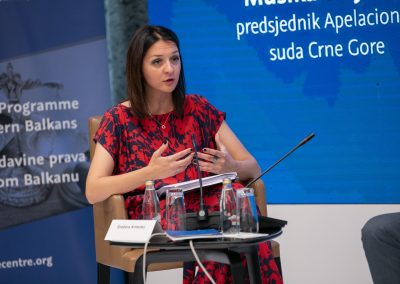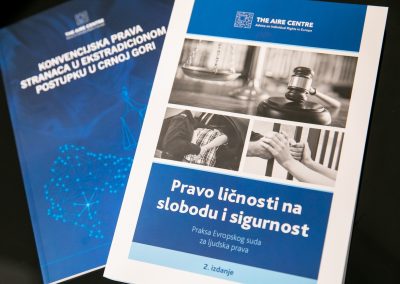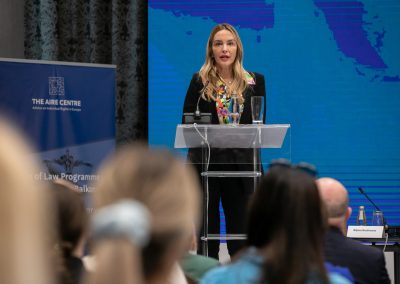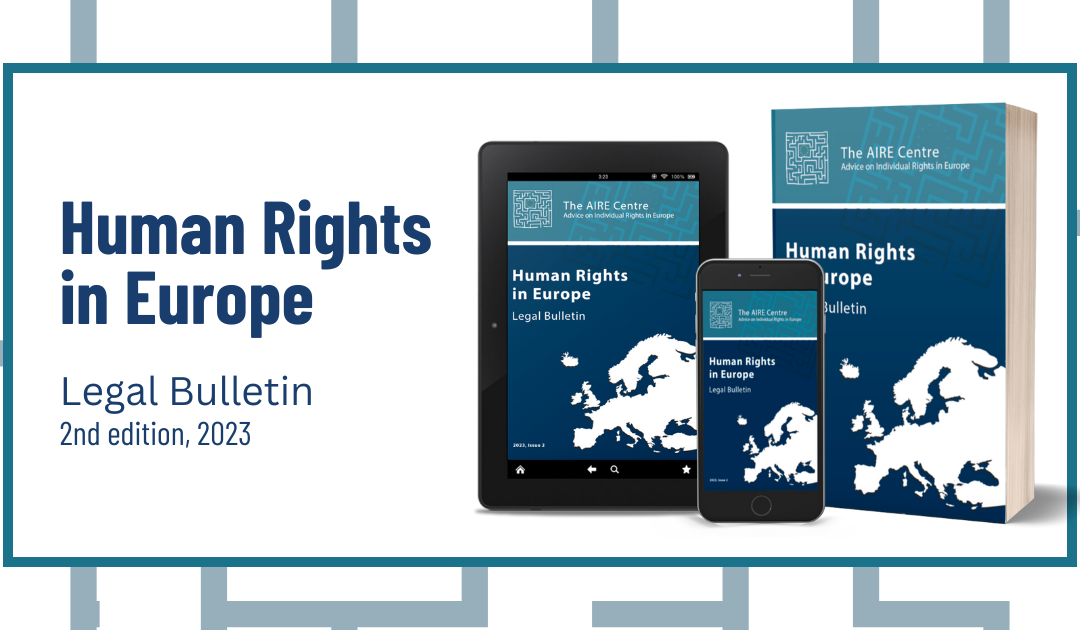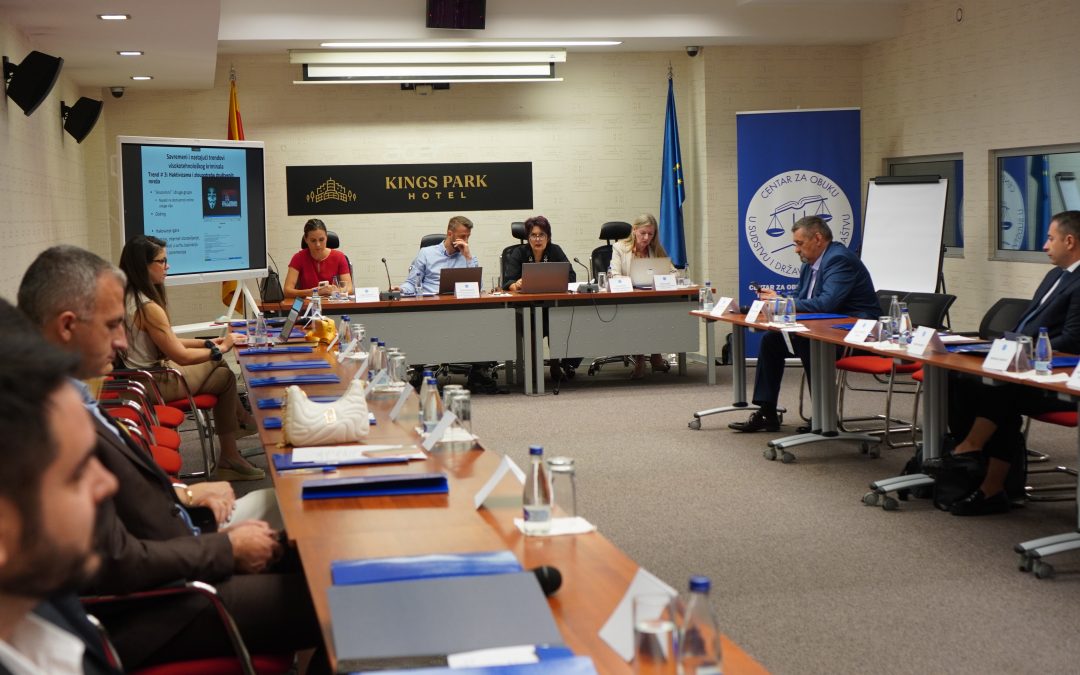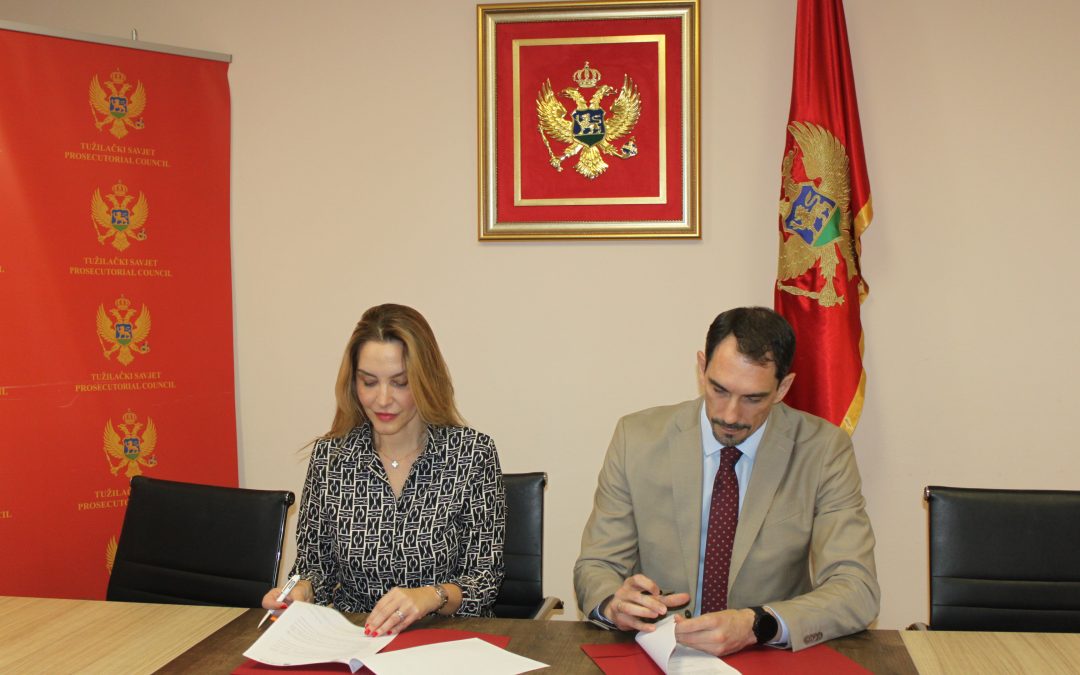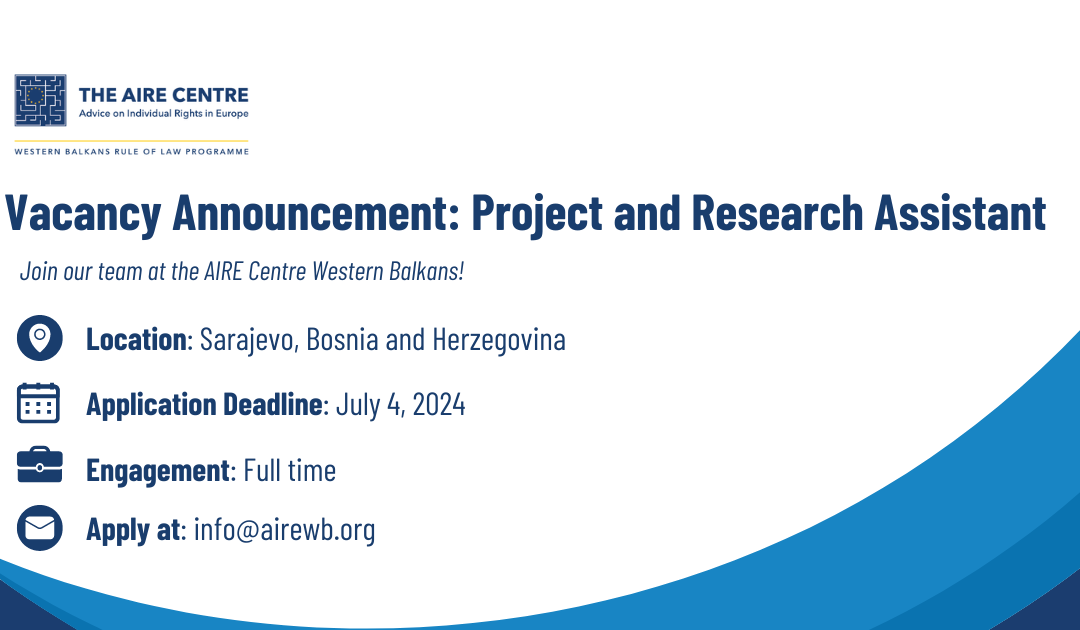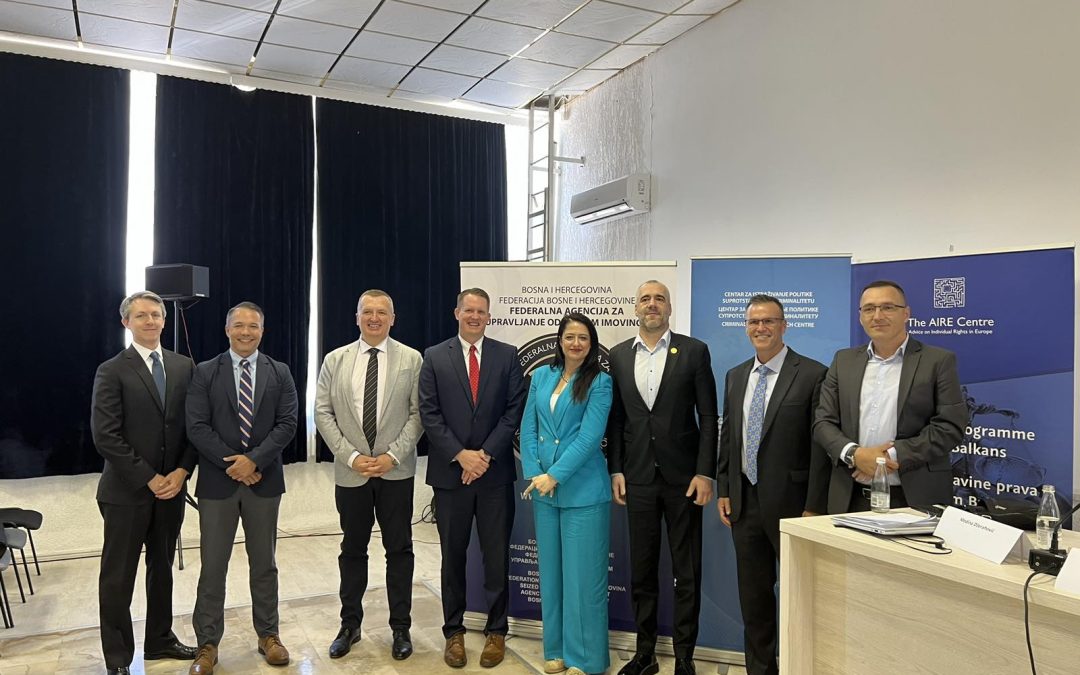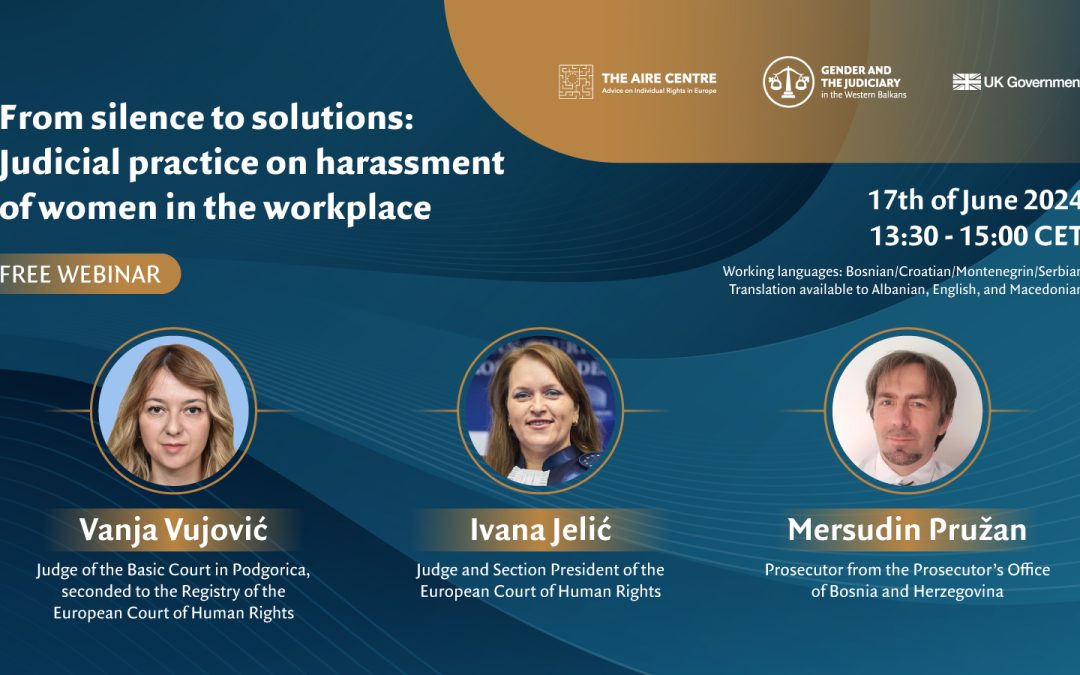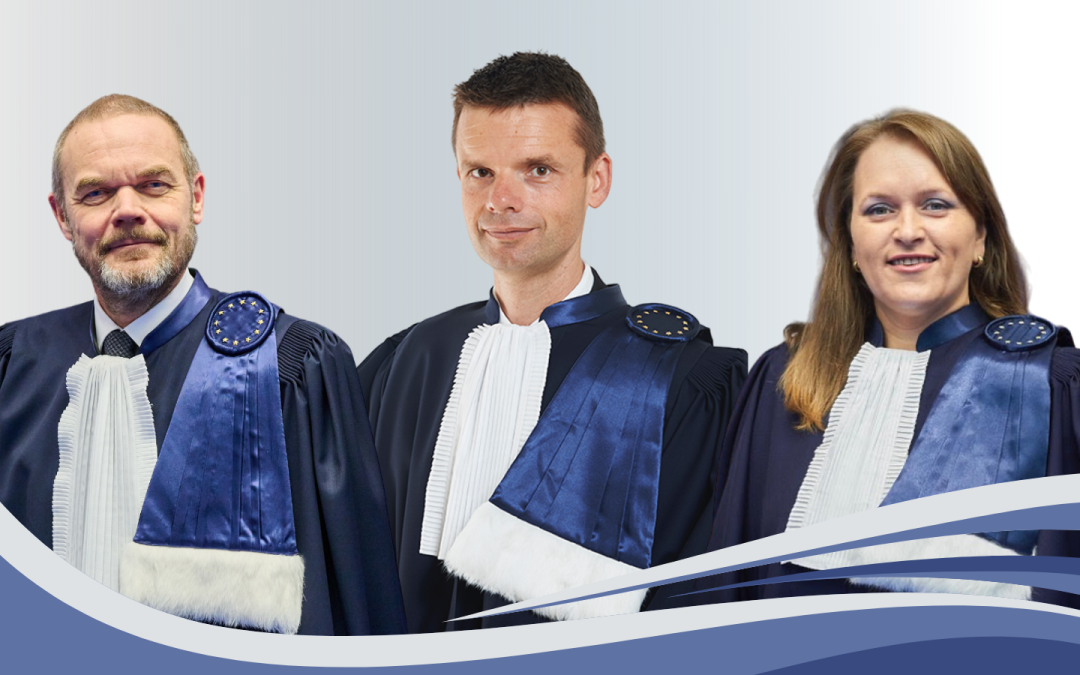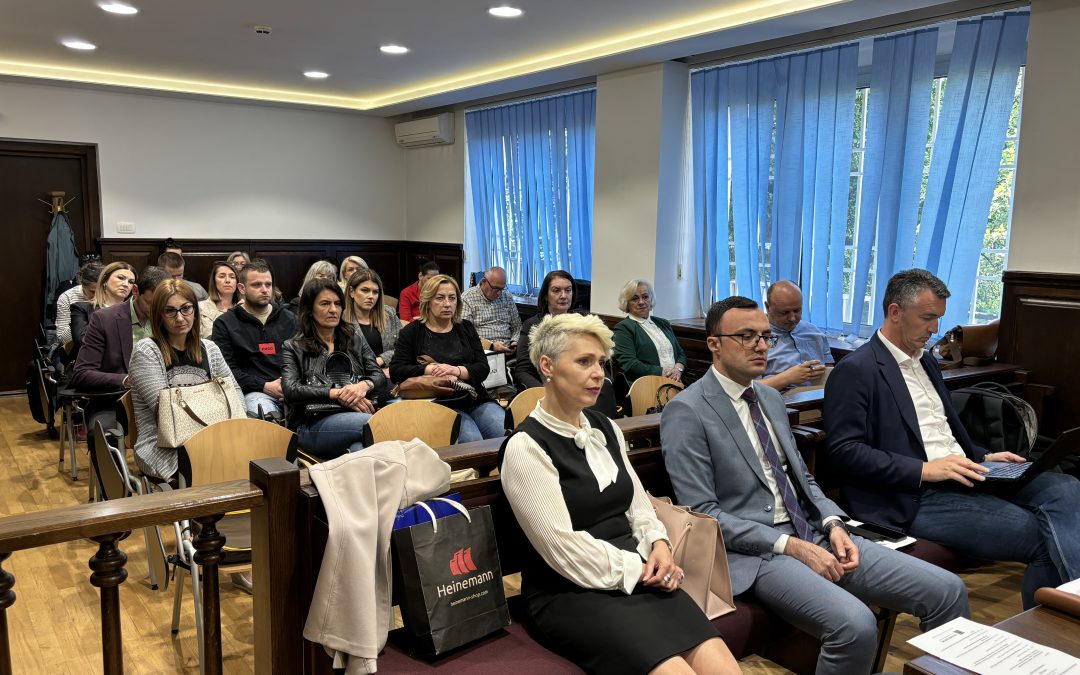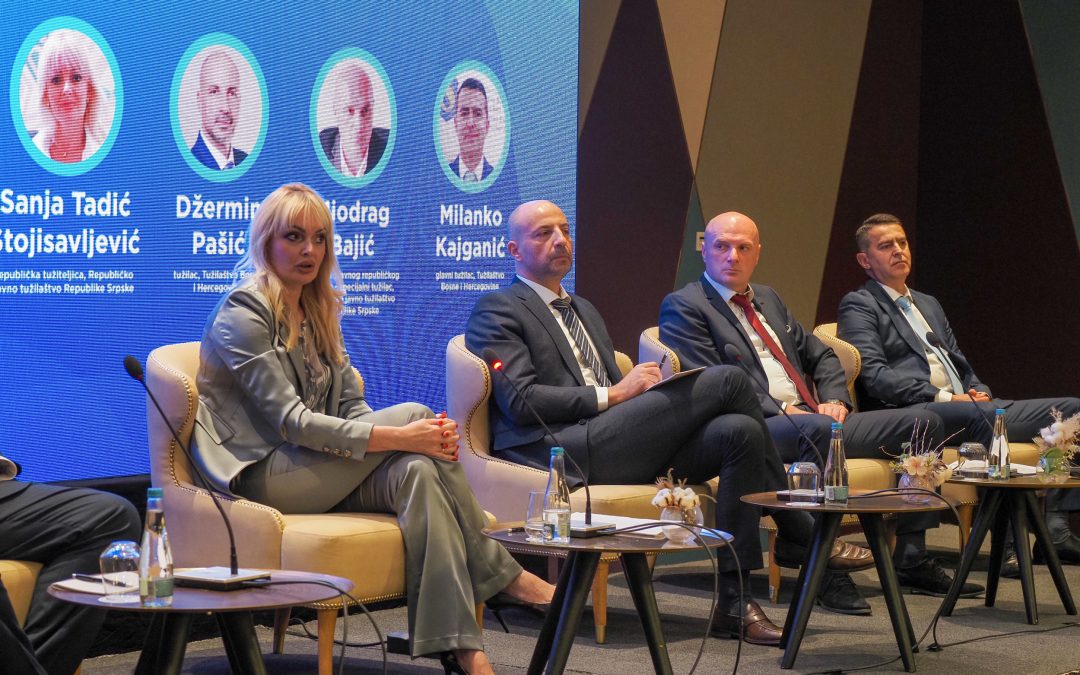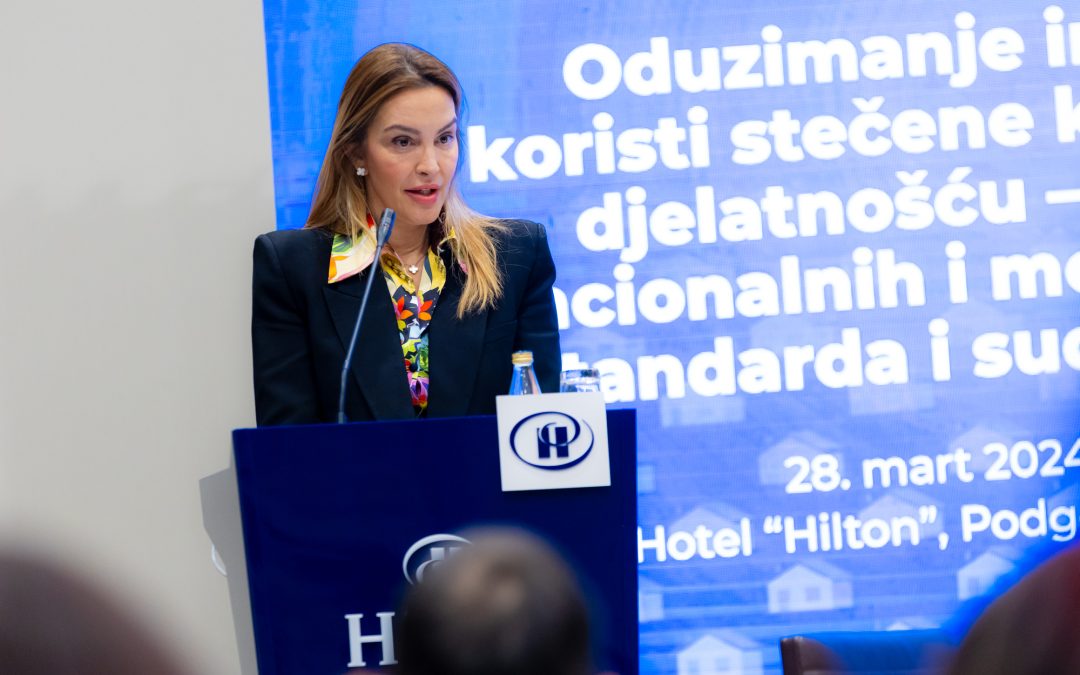In order to strengthen the protection of foreigners in extradition proceedings, the AIRE Center, with the support of the British Embassy in Podgorica, held a roundtable discussion entitled “Convention Rights of Foreigners in Extradition Proceedings in Montenegro” in Podgorica, emphasizing the importance of addressing potential violations of rights and improving procedures in these cases. The event also introduced a handbook providing an extensive overview of the standards and practices of the European Court of Human Rights regarding these proceedings. The roundtable brought together over 50 key experts from the judiciary, including court presidents and judges, as well as representatives from state institutions, lawyers, and representatives of non-governmental organizations.
“The issue of extradition has led to a significant number of judgments and decisions of the European Court, which have shaped judicial practice and established significant standards in this area, with which the legislators and judiciary of Montenegro must be acquainted. This handbook showcases significant standards and provides a roadmap for compliance with the Convention itself. Furthermore, it identifies shortcomings and challenges in Montenegro’s current practices, offering suggestions for improvement, as well as legislative changes to align Montenegro’s procedures with the highest human rights standards”, said Biljana Braithwaite, Program Director of the AIRE Center for the Western Balkans.
The author of the handbook, Snežana Armenko, a judge of the Constitutional Court of Montenegro, highlighted how the country can take a series of steps to systematically address the challenges that arise, such as amending the Law on International Legal Assistance and aligning it with relevant provisions of the Criminal Procedure Code, the Law on International and Temporary Protection of Foreigners, and the Law on Foreigners.
“I hope that this handbook, by identifying practices that are not always in line with Convention standards, will lead all state authorities to take appropriate general measures to correct identified deficiencies and lead to uniform practices and procedures that meet the requirements of the Convention and the standards of the European Court of Human Rights required in extradition proceedings. To ensure the success of these proceedings, consideration should be given to concluding agreements or protocols on cooperation, which is very important in international law in the fight against organized crime but also in respect for human rights,” said Snežana Armenko, a judge of the Constitutional Court of Montenegro and author of the handbook.
Additionally, the publication “Right to Liberty and Security of Person” was presented at the event, offering an overview of the most significant practices of the European Court regarding Article 5 (right to liberty and security), which is a significant issue for Montenegro and other countries in the Western Balkans, especially regarding the treatment of migrants and asylum seekers for the purpose of immigration control, to confinement for medical reasons under mental health legislation, as well as pre- and post-trial detention as part of criminal proceedings.
The judicial practice of the European Court regarding Article 5 is broad and dynamic, evolving parallel to emerging challenges such as the global Covid-19 pandemic. Therefore, the aim of this handbook is to be a useful tool for members of the judiciary, as well as state officials, law enforcement agencies, and practitioners seeking guidance on contexts in which deprivation of liberty may arise, the justifications for deprivation of liberty, and the procedural safeguards needed.
The event also included a panel discussion where participants had the opportunity to discuss extradition proceedings in Montenegro in practice, challenges faced by all institutions involved in these cases, and the need for better inter-institutional cooperation, with the President of the Court of Appeal of Montenegro, Mušik Dujović, the President of the Administrative Court of Montenegro, Miodrag Pešić, the judge of the Supreme Court of Montenegro, Seka Piletić, and the Director-General of the Directorate for International Judicial Cooperation at the Ministry of Justice of Montenegro, Branimir Janjević.
